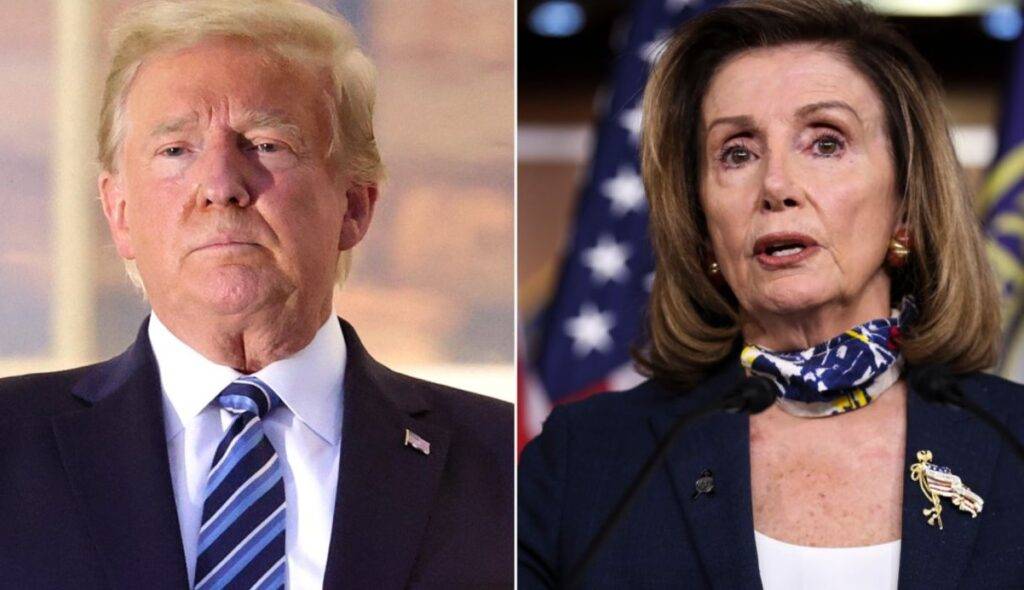Former Vice President Kamala Harris’s defeat to President Donald Trump is widely seen as a turning point that may mark the decline of the influence held by aging Democratic leaders like former House Speaker Nancy Pelosi. This loss comes at a time when Pelosi, once regarded as a dominant figure in shaping the direction of the Democratic Party, is now facing growing criticism.

For decades, Pelosi was considered a key figure in the Democratic Party, playing a crucial role in guiding party strategy and influencing candidate decisions. However, the aftermath of Harris’s loss to Trump has cast doubt on her political clout. Pelosi, who was instrumental in efforts to orchestrate President Joe Biden’s exit from the race, now faces a diminishing role as she grapples with the consequences of Harris’s defeat.
The timing of this fall from grace is significant, as it comes just months after Pelosi was involved in pushing for Biden to step aside. Many have pointed to Pelosi’s involvement in the effort as a turning point that led to the eventual shift in the party’s fortunes. Pelosi’s status as a party leader has now been undermined by the results of the election.
As the fallout from Harris’s defeat continues, Pelosi finds herself the target of mounting blame from both Republicans and critics within her own party. Business investor and TV personality Kevin O’Leary remarked that the influence of established Democratic figures, like Pelosi and Senate Majority Leader Chuck Schumer, was diminishing. He further suggested that in just a few years, such figures would no longer hold the same sway over political decisions, alluding to the shifting political landscape and the changing dynamics in the Democratic Party.
Some Republicans have been quick to point fingers at Pelosi, suggesting that her influence played a major role in the party’s losses. Former House Speaker Kevin McCarthy, a fellow Californian, argued that Pelosi should be held accountable for the Democratic setbacks, including the Senate flipping to Republican control and the ongoing uncertainty in the House. McCarthy emphasized that Pelosi’s efforts to push Biden out of the race were a significant factor in the party’s decline. He criticized the actions as undermining the democratic process, pointing out that primary voters across the country had supported Biden, only to see Harris eventually emerge as the party’s nominee.
Additionally, McCarthy expressed his long-standing concerns about Biden’s fitness for office, claiming that he had been aware of issues with Biden’s candidacy during their personal conversations. He argued that Biden never should have run for re-election, highlighting what he saw as flaws in the former president’s ability to lead the country.
On the other side of the aisle, some Democratic figures have reacted with alarm over the aftermath of the election, with Representative Alexandria Ocasio-Cortez among those raising concerns about the political direction the country could be heading in. Ocasio-Cortez warned her followers on social media about the potential for a shift toward authoritarianism and fascism in the wake of Trump’s victory. She urged her supporters to remain resilient, emphasizing the importance of building strong community networks and resisting any attempts to curtail democratic principles.
Ocasio-Cortez’s rhetoric painted a stark picture of the political environment she feared was emerging. She warned that Trump’s rhetoric, particularly regarding the use of the military against political opponents, could signal a dangerous shift in the nation’s governance. Without providing evidence to support her claims, she compared the current political climate to historical periods where authoritarian regimes targeted dissenters and political opponents.
As the blame game unfolds, Pelosi’s leadership is increasingly scrutinized, and the once-dominant figures of the Democratic Party are being called into question. The aftermath of Harris’s loss has set the stage for new debates about the future direction of the party and the shifting power dynamics within American politics.